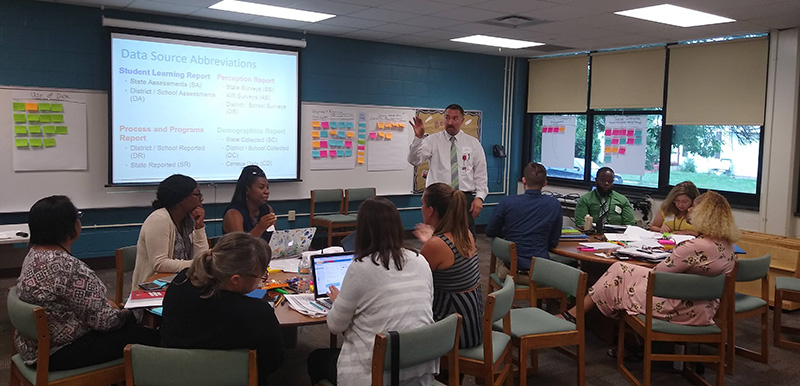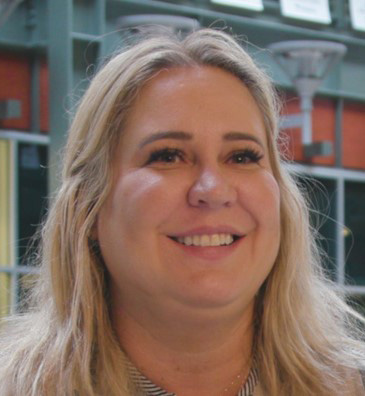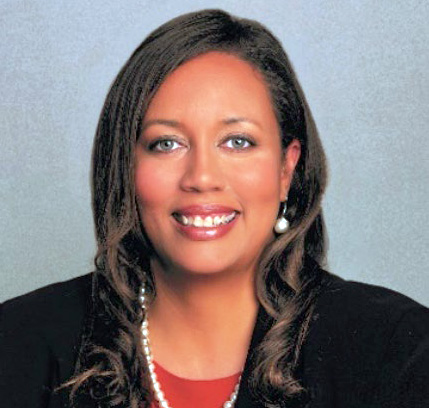Stories from the DSI Digest Archive │ District and School Improvement Center
The District and School Improvement Center at AIR is proud to share stories of our partnerships with district and school administrators and teacher leaders across the country. In each issue, we share how we support education practices in continuous improvement planning and implementation, as well as providing insight into the latest from AIR education research. Experience the implementation of best evidence-based strategies and protocols to maximize plans and sharpen their knowledge base with the best thinking to lead and instruct through the lens of educational leaders.
December 2019 Issue
Prince William County Public Schools, the second largest school district in Virginia, has a long-standing reputation as a high-achieving school district. The DSI Center at AIR worked with division and school leaders to build on their foundation for collaborative team practice. Meet Christy Taylor, director of the Office of Professional Learning for Prince William County. Watch as she and Prince William County school staff share their journey partnering with teachers to deliver consistent practices to perform better and build the capacity of district staff to support and sustain their work with AIR as their support.
Client Testimonial: Zion Elementary School District 6
- Michael Karner, Assistant Principal, Zion Central Middle School
In Zion, Illinois, district leaders worked with the District and School Improvement (DSI) Center to create a week-long intensive leadership academy for school-level leaders. The leadership academy focused on preparing leaders to develop actionable school improvement plans that would drive the school improvement process. Leaders engaged in a deep data dive processing their own school-level data to examine current practices identifying successes and evidence-based strategies to address challenges to strengthen their school improvement plans and teams.
Enhancing Instructional Practices Through Professional Learning Communities in Virginia
Prince William County Public Schools, the second largest school district in Virginia, has a long-standing reputation as a high-achieving school district. The DSI Center at AIR worked with division and school leaders to build on their foundation for collaborative team practice. Meet Christy Taylor, director of the Office of Professional Learning for Prince William County. Watch as she and Prince William County school staff share their journey partnering with teachers to deliver consistent practices to perform better and build the capacity of district staff to support and sustain their work with AIR as their support.
Videos: Stories of Continuous Improvement in Illinois
The DSI team partnered with two Illinois school districts on their continuous improvement journey: East Aurora School District 131 and Round Lake School District 116, located in suburban Chicago. Watch the story of our collaboration with Dr. Jennifer Norrell, superintendent of East Aurora School District 131 and Dr. Donn Mendoza, superintendent of Round Lake School District 116 and their teams as we journey together using AIR’s school improvement path to meet critical needs in leadership, school climate and culture, and teaching and learning to provide equity and improvement for all students.
We would love to hear from you! Tell us what you think of these videos by e-mailing us at dsicenter@air.org.
October 2019 Issue

Summer Enrichment for Stephen Foster 67
– Debra Pickett, Principal, Stephen Foster School 67
In Indiana, DSI partnered with Stephen Foster School 67 (K–8) in Indianapolis Public Schools to conduct a Comprehensive Needs Assessment that included a Root Cause Analysis process. From there, DSI collaborated with district and school leadership for the school improvement planning process to develop goals and drivers for improvement based on key findings from the needs assessment and Root Cause Analysis. The team drew from research and best practices by infusing resources such as the Institute for Education Sciences’ What Works Clearinghouse, Education Resources Information Center, and the Indiana Department of Education’s Targeted Support and Improvement/Comprehensive Support and Improvement Resources, which have proven to transform systems.
Back to School for Cairo and Dongola’s Faculty
- De De Oshea, Teacher, Cairo Elementary School
In the rural communities of Cairo and Dongola in southern Illinois, DSI conducted a review of each district’s data and key findings from our Continuous Improvement Process, which includes an Intentional Data Review and a Root Cause Analysis. DSI developed a set of professional development trainings for teachers and administrators focused on Social and Emotional Competencies, Depth of Knowledge and Rigor, Chronic Absenteeism, and Standards-Aligned Curriculum. Teachers and administrators are now prepared to use evidence-based and best practice strategies to support their school improvement efforts this year.
Utica City School District – Partners to Strengthen Leadership, Instruction, and Learning
- Ashley Hayes, who started as an ELA coach at MLK in 2013 and now works across the district
In October 2013, AIR began work with Martin Luther King (MLK), Jr., Elementary School in Utica, New York. MLK was designated a priority school being among the lowestperforming 5% in the state. District and school staff were determined to improve instruction and entered into a collaborative partnership with DSI to provide support meeting that vision. AIR provided instructional and leadership coaching. The AIR leadership coach focused on building the principal’s leadership skills, establishing a data-driven system, and developing a strong school leadership team.
The AIR instructional coaches worked in classrooms and with groups of teachers supporting professional development on the content and teaching strategies of new curricula in mathematics and ELA. As teachers’ knowledge grew, coaching support shifted to implementing data-focused professional learning communities to refine teaching units and share teaching practices to meet the specific needs of MLK students.
As a result of the partnership, in 2018, Martin Luther King Elementary School was designated a school in good standing for New York state accountability. In 2019, the school saw continued increases in the percentage of students who were proficient in mathematics, science, and reading.
June 2019 Issue
Collaboration That Makes a Difference
 Christy Taylor, Director, Office of Professional Learning, Prince William County Public Schools
Christy Taylor, Director, Office of Professional Learning, Prince William County Public Schools
Services: District Professional Learning Community Implementation Support
Prince William County Public Schools is the second-largest district in Virginia, with more than 100 schools and learning centers and a long-standing reputation as a high-achieving school district. Building the capacity of teacher leaders throughout the school building is essential to carrying out and sustaining quality instruction. Professional learning communities (PLCs) in Prince William County Public Schools are the backbone of any school and the vehicle of change for school improvement.
coaches and that they make adjustments, changes, and plan together. AIR is a collaborator. A lot of companies will come in and say, ‘this is what we're going to do,’ but I feel like we’ve been included in every step of the way. They have really changed the way that professional learning could look like in Prince William County Schools.”
– Christy Taylor
Prince William County has focused on PLCs for more than 13 years, using professional development to strengthen a shared vision for a divisionwide culture of collaboration with high-functioning learning teams. But results were inconsistent across the division. The goal was to increase consistent practices and successful PLC implementation across the district. The District and School Improvement Center at AIR brought an evidence-based approach to differentiated divisionwide professional learning to lay the necessary foundation for PLCs to thrive and make a sustainable impact on teacher practice and student achievement. AIR worked with a cohort of 22 schools (elementary, middle, and high school) to implement consistent practices, creating a shared PLC vision and language and effective structures and processes while building the capacity of district staff to support and sustain the work. Each school participated in professional development sessions and received site coaching from an AIR PLC coach. PLC coaches worked with principals to serve a dual purpose to provide (a) targeted support to school teams composed of PLC leaders and administrators, and (b) the opportunity for instructional leaders and coaches to shadow an AIR coach to provide realworld “train-the-trainer” experiences.
District staff participated in training specifically designed to build their capacity to effectively lead, monitor, and support PLCs across the district. Training was provided in the Concerns-Based Adoption Model (CBAM) which is a framework that provides tools for district leaders to assess implementation progress and determine solutions to deepen implementation.
 Dr. Jennifer Norrell, Superintendent, East Aurora School District 131, Aurora, Illinois
Dr. Jennifer Norrell, Superintendent, East Aurora School District 131, Aurora, Illinois
Services: District and School Needs Assessment and Continuous Improvement Planning
East Aurora School District 131, one of the largest K–12 school districts in the Chicago metropolitan area, is on a mission to cultivate “all stakeholders to reach their full potential” under the leadership of superintendent Dr. Jennifer Norrell. As a first-year superintendent, Dr. Norrell began her journey by partnering with the District and School Improvement Center at AIR on the development of a strategic plan for school improvement planning with leadership coaching and monitoring to chart their course. The kickoff was a multiple-step process beginning with a comprehensive needs assessment conducted in August 2018 of the district’s 23 schools. AIR guided the district through the process by collecting and organizing new and existing data that led into a co-interpretation℠ event. A cross-section of East Aurora stakeholders, including district and school leaders, teachers, parents, and community members, participated in a review, discussion analysis, and interpretation of data to collaboratively decide priority areas for improvement.
AIR really helped to leverage the ownership from all the stakeholders and to foster their value and their input in the process. Ultimately, that will allow us to carry on successfully with the implementation of our strategic plan.
Actually building it and having one, to now actually living it is only accomplished with having stakeholders involved, and I credit AIR for the leadership and guidance to make it happen.”
- Dr. Jennifer Norrell
Next, AIR facilitated East Aurora School District 131’s comprehensive strategic planning process using the priority areas identified in the co-interpretation process to identify district/school level teams' processes and procedures that could be enhanced by AIR’s school improvement experts and lead to increased student achievement. This process led to East Aurora’s Strategic Planning Team developing a strategic plan that included a mission, vision, goals, objectives, and common language and understanding about the purpose, elements, and best practices regarding continuous improvement planning, with an eye on increasing student achievement. The result of East Aurora’s strategic planning work is a roadmap for the entire district in improving educator practice and student achievement that provides the district with a clear direction for the next three to five years.
